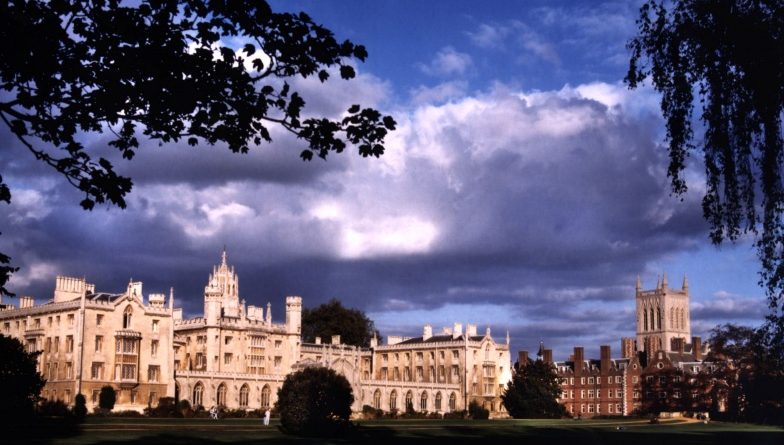Brexit clouds gathering over British universities
British universities are beginning to suffer the consequences of Brexit. Data published by the University and Colleges Admissions Services (UCAS), a body managing applications to high education courses, show that European students are falling out of love with Britain. With uncertainty over their career prospects, academics from other EU countries are also reconsidering their future in the UK. What would be the impact of an EU exodus from British universities? Experts discussed at a recent meeting of the House of Commons education committee.
Languages and internationalism
UCAS revealed that at the deadline of 15 January 2017, 564,190 students applied to British high education courses, a decline of 5% compared to the same period last year. Applications from the UK decreased by 5% (to 469,490), those from non-EU countries remained stable (52,630), while registrations from the European Union fell by 7% (to 42,070). This is significant considering that EU applicants have been increasing between 5 and 7% a year since 2013.
The biggest fall was recorded in nursing and medicine, pointing at a future lack of qualified personnel in a sector already reliant on international staff. The decline was also importatnt in linguistics, European languages and literature. “The numbers of people who are studying French, German, Spanish and other languages have gone down,” warned Sally Hunt, General Secretary of the University and College Union, at the committee meeting on January 25th. “If we are going to be competitive globally, we have to speak foreign languages.”
Professor Michael Arthur, President and Provost of University College London (UCL), confirmed that applications at their School of European Languages, Culture & Society and at the School of Slavonic and East European Studies, are down by about 30%. “That is something new that we have not experienced before and something that we will obviously have to deal with,” he said.
London and the regions
Overall, UCL’s recruitment shows a brighter picture than UCAS’: a growth of 5% from the UK, a decline of 0.8% from the EU and an increase of non-EU students by 6.9%. But UCL is one of the most international universities in the world, according to the Times Higher Education, and has the advantage of being based in central London.
The new dynamics are likely to hit the most in other UK regions. Nicola Dandridge, Chief Executive of Universities UK, said that vice-chancellors in other parts of the country are concerned about the decline in EU student numbers. They worry about the loss of the economic benefits they bring, that some courses might not be viable without their presence, but also that local scholars will miss the opportunity of international exposure. “There are huge benefits from students working in diverse classrooms and contexts. They become more employable globally and more competitive in the global marketplace,” said Dr Jo Beall, Director of Education and Society at the British Council.
Some suggested that to fulfill the government ambition to make the UK “the go-to nation for scientists, innovators and investors in technology,” EU students and staff could be replaced by non-EU counterparts after Brexit. But the idea was rejected all together at the meeting: “I don’t accept that point,” said Sally Hunt. “The point is that the university system in this country has all of those within the community now. That is something we have to maintain and push forward.”
‘Ecosystem’ at risk
Lower numbers in EU students, especially postgraduates, also undermine the pipeline of researchers and professors who remain in the country under EU free movement rules. “Large numbers of international European postgraduates students will then go on to teach, often in subjects where we may not have enough local capacity. Then they become key researchers who attract partners and funding, who participate and bring in other sources of funds. The whole thing is an ecosystem,” explained Nicola Dandridge.
Perhaps not surprisingly, the most international British universities are also the ones receiving the largest amounts of EU funds. The University of Cambridge is the highest UK recipient, followed by Oxford and UCL. Dr Beall also reminded that with only 0.9% of the global population, the UK produces 15.9% of the most highly cited articles in the world. Over 60% are written with partners from EU countries, according to a University of Cambridge spokesperson.
How could this continue in the future is now in question. Experts in the meeting said that people are pulling out of research bids and EU nationals “feel very strongly that they have to look elsewhere for long-term employment and career opportunities.” Adding to this, the feeling is widespread among EU students and staff of being unwelcome in Brexit Britain.
A survey of more than 1,000 staff published by the University and College Union in January revealed that 42% of academics are now more likely to consider leaving and the percentage rises to 76% for non-UK EU staff. “A very important thing that could be done quite quickly would be to sort out the right to remain for existing EU staff in universities and obviously for students as well,” said Professor Arthur. But the government does not want to secure the rights of EU citizens in the UK without having guarantees on Brits living in other EU countries at the same time.
People’s lives
The plight of EU staff in British universities is illustrated by the story of Bruno Pollet, a French academic who has been working in Britain since 1991. Like many others, he arrived in the UK for a work placement as part of the Erasmus programme. He completed his studies at Coventry University and moved to Aberdeen for a master and a PhD in chemistry. His career has since progressed in British companies and universities. Only between 2012 and 2015 he took on a research job in South Africa. Because of this assignment, his application for permanent residence in the UK has been rejected, as this is granted after 5 years of continuous living in the country but is lost after 2 years of absence.
“When you work in this field, you need to make international research and work with overseas partners. If I had known I would lose my rights now, probably I would have chosen not to go,” he says.
Pollet is unsure of what to do about the future, with his British wife and a 2-year-old child. He should be able to re-apply for permanent residence after completing another 5-year period in the country, but in the meantime Brexit will have happened and no one knows what this will mean for him, his family and career.
Claudia Delpero © all rights reserved.
Photo: St John’s College, Cambridge. By Harry Tubbs via Wikimedia Commons.







Stop describing non-UK academics from Germany/Italy as being ‘from the EU’. I am a British citizen and I am just as much ‘from the EU’ as anyone else who is a citizen of the EU
Point taken and just to be clear, this is due to the difficulty sometimes to avoid repetitions and use relatively short sentences. It does not mean we believe UK citizens are not EU’s as well.